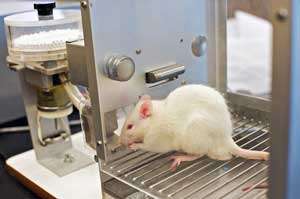Persistent palatable food preference in rats with a history of limited and extended access to methamphetamine self-administration
 ©iStock.com/JOE CICAK
©iStock.com/JOE CICAK
Recent research has shown that most rats will choose non-drug rewards (palatable foods) over self-administering cocaine, if given the option. A new study by researchers at NIDA’s Intramural Research Program examined whether such a preference generalizes to rats with a history of limited or extended access to another stimulant drug, methamphetamine. Rats were trained to self-administer methamphetamine and palatable food for several weeks and were assessed at different periods throughout the study; in some conditions the rats were presented with the choice while they were experiencing methamphetamine withdrawal.
Across all conditions, rats in this study strongly preferred palatable food rewards over self-administered methamphetamine, even when they had free access to the food in their home cages. These findings confirm results from previous cocaine studies as well as suggest that escalation of drug self-administration, often used in studies of compulsive drug use, is not associated with reduced behavioral responding for non-drug rewards, an important feature of addiction in humans.
Source:
Caprioli D, Zeric T, Thorndike EB, Venniro M. Persistent palatable food preference in rats with a history of limited and extended access to methamphetamine self-administration. Addict Biol. 2015 Jan 12. doi:10.1111/adb.12220. PubMed PMID: [25582886]
